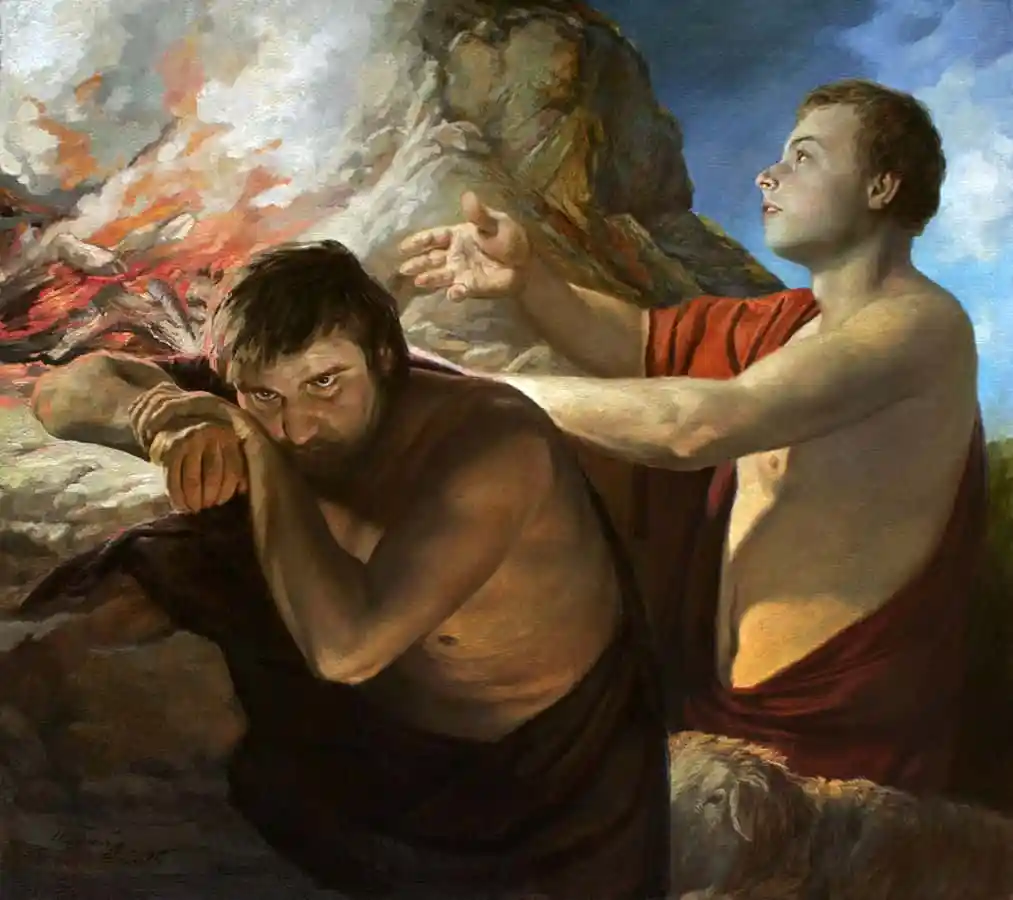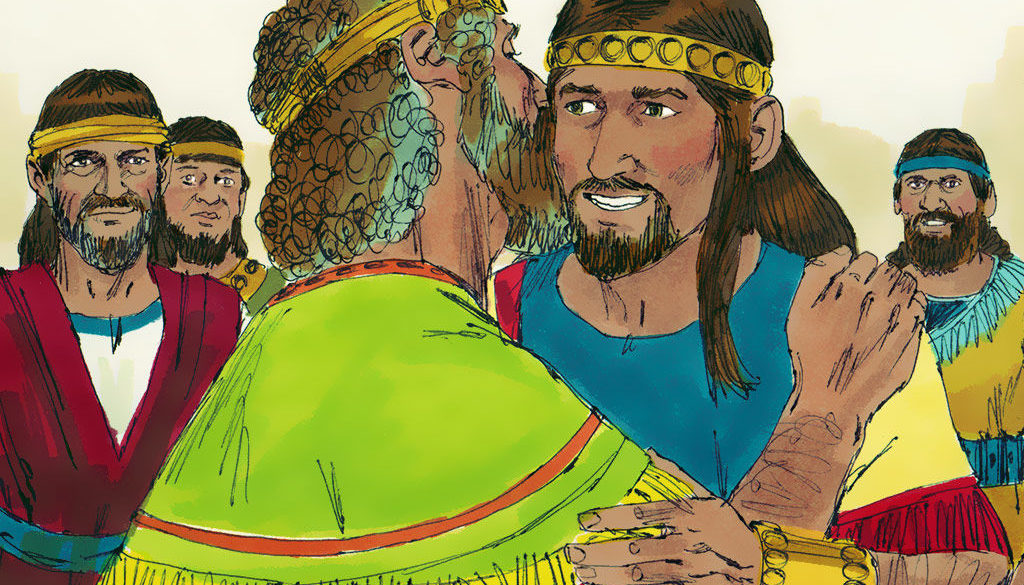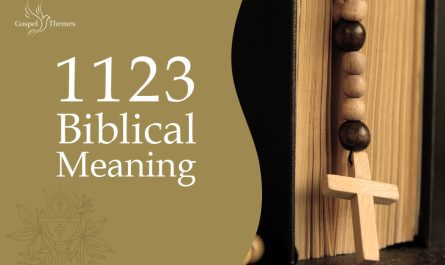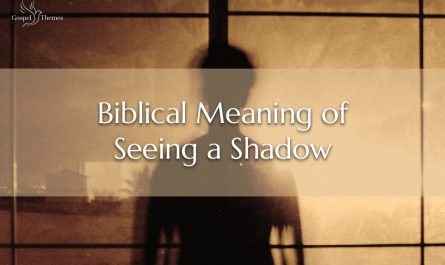Fighting with family members is a negative and often traumatic experience for some people. However, it’s also normal with so many relationships and conflicting interests between members to result in a dispute. At the end of the conflict, both sides should become wiser and know how to handle family conflict biblically.
Things take a wrong turn often, with disagreements escalating to incredible levels. This is a clear sign of an inability to control emotions with a disastrous lack of empathy toward a fellow member of the family circle. This is why following the Bible’s teachings can help us get through these situations and help us evade all the negative feelings it can bring.
The article will discuss how to rise above family conflicts with the values taught in the Bible and prevent escalations with people from your circle.

Source: calmerry.com
How to Handle Family Conflict Biblically
Families fight over almost everything. The reason for this seemingly broken communication is the proximity each member feels toward the other and how easy it is to disrupt the emotional balance. All individuals have certain expectations from their close ones, and quite often, people can’t live up to them, causing disappointment and fury.
The Bible is the best teacher for students of life. It provides guidance for almost all situations through its many stories. The key to using the Bible as a guideline is in knowing how to interpret the words and extract the substance from the stories.
When it comes to family feuds, the Bible has many stories with such scenarios. The stories have different endings depending on how the protagonists acted in the high-pressure situations, which tested their love, respect, and belief in God.
Here are some of the most notable family feuds in the Bible and what we can learn from them:
Cain and Abel
Cain and Abel were the sons of Adam and Eve. Cain was a farmer, while Abel was a shepherd, and they both had a way of showing their affection towards God through giving offerings from the fruits of their labor. Cain offered produce from his garden, while Abel offered the best sheep.
While they both offered what they could, God still favored Abel’s offering because it was always the best flock, and it was always with sincerity. Cain couldn’t handle God’s preference for his brother’s offerings and grew angry and jealous. Despite many warnings, Cain’s anger towards Abel grew uncontrollably, ultimately leading to him murdering his brother.
As punishment, God cursed Cain to no longer be able to farm the land. He set out to wander the Earth, fearing for his life and without the presence of God.
Moral of the story
Brother feuds are common, and more often than not, they’re about petty things like jealousy and competition. Brothers often fight over tangibles like property or money, but the same reasons hide at the very core of those disputes.
In a brotherly feud, the Christian way is for one of the brothers to offer a compromise and perhaps let go of what they were fighting for. No matter the reason, it can’t be more significant than the family bond, although it has the power to break it. A clear example is Cain, who loved his brother but still killed him in cold blood.
Here, the other side’s ability to accept the extended hand is an often undervalued element. Once the ego comes into play, it becomes tough to let go of the feud, no matter how much pain it inflicts on both sides.

Source: i0.wp.com
Sarah and Hagar
The origins of popular biblical characters Isaac and Ishmael are very complex. They were half-brothers who shared Abraham as their father. Abraham and his wife Sarah couldn’t conceive a child, so they had the idea for him to conceive with Hagar, their servant.
This act of desperation was motivated by their desire to fulfill God’s promise and deliver an heir to carry the divine covenant. Little did they know the implications of their actions would cause some major complications to their lives.
Hagar became pregnant with Ishmael, while Sarah would later miraculously conceive a child at the age of 75. This created great tension as Sarah felt threatened by the presence of Hagar and Ishmael.
Abraham was forced to comply with his wife’s demands and reluctantly sent them to wander the wilderness after God had promised him that he would take care of them. After many struggles, Ishmael prevailed and managed to reach great heights, becoming the father of a great nation.
Moral of the story
Sarah and Hagar were both in an unfortunate situation, but it was mostly because of Abraham’s and Sarah’s impatience to wait for God’s miracle. While this dispute didn’t have any victims, it’s important to note that Sarah’s motives were to get rid of Ishmael and his mother, even though she was the one that helped create the situation.
Sarah failed to accept the consequences of her mistake and felt that it was possible to erase her previous actions. Abraham’s reluctance to let them go into the wilderness pointed to his goodness. He agreed to let Ishmael and Hagar go only after he received God’s word that they would be safe.
The biggest takeaway from this story is that both Ishmael and Isaac went on to achieve great things, not allowing the events of the past to stop them on their quests.

Source: darrowmillerandfriends.com
Jacob and Esau
This is another story of brothers in a conflicting situation. Jacob and Esau were the twin sons of Isaac, who were very competitive from a very young age. Esau was a good hunter and was the favorite son of Isaac. Their mother, Rebekah, had an affinity for Jacob, who was more inclined to domestic life.
Esau, being the firstborn, held major privileges like the right to a bigger inheritance and the leadership role of the family. However, Isaac became blind in his elder days, and Jacob took advantage of that fact to fool him into giving him the blessings intended for Esau.
This made Esau angry, and he wanted revenge, but Rebekah hid her favorite son in her brother’s house. Jacob set out on a journey away from his family, facing his own share of deceptions and adversities.
After 20 years, Jacob’s desire to return home grew too big. He set out to return home, and on his way back, he met his long-lost brother Esau who had become rich and powerful while Jacob was away. Much to Jacob’s surprise, Esau received him warmly and with forgiveness.
Moral of the story
Many people who have felt their own brother’s desire for retribution will recognize Esau’s wrath. However, Jacob spent 20 years away from his family out of fear of confronting his brother.
To make matters worse, he didn’t even need to defend himself upon meeting his brother. Instead, he was met with warmth and forgiveness, which was unfathomable for Jacob, who spent a large portion of his life hiding.
Esau went through a positive transformation after letting go of his anger and desire for retribution. It was Jacob who had stagnated in this regard because he was still living in the same moment after all that time.

Source: jw.org
Joseph and his brothers
Joseph was a gifted young man and the favorite son of his father, who gave him the best robe to wear. His brothers were incredibly jealous of him, and their jealousy exploded when he told them that he had a dream of them bowing to him and accepting him as their leader.
They conspired to sell him as a slave to a passing caravan, and they fabricated a story of his death to deceive their father. They told him that Joseph was killed by a wild animal and showed him his coat which they had previously soaked in blood.
Joseph’s ability to predict the future made his life as a slave easier, as his master Potiphar liked to keep him close, as it helped his career. That was until he was falsely accused and put in prison by Potiphar’s wife.
Much like slavery, the prison was another jumping board for Joseph, who got summoned by the pharaoh to interpret his dreams, after which he was made second in command. Not long after, Joseph met his brothers on their search to escape famine, and the prophecy got fulfilled when they bowed in front of him, not knowing it was their little brother.
Moral of the story
Many family conflicts arise because of jealousy of someone’s gifts and talents. It takes great humility and nobility to accept that someone is better, especially if they come from an inferior position like that of a younger sibling.
The main takeaway is Joseph’s uncanny ability to dust off his clothes and keep on grinding until he succeeds. He didn’t have a special plan, but he also held no grudges for those who gave him all the hardships.
His belief and confidence made him the noble person he was because no matter what, he knew his qualities would surface. That is how we should approach conflicts within the family – we need to be confident in our abilities because all our insecurities will come out the minute we’re put under pressure.

Source: weswhite.net
Miriam and Moses
Miriam was the sister of Moses and Aaron, and she played a significant role in the Exodus. She was a female prophet who helped free the Israelites from slavery in Egypt. On one occasion, while talking to Aaron, she showed her resentment over the Cushite lineage of Moses’ wife and questioned his authority due to his marital choice.
God responded furiously over Miriam even though she was a devout leader and a fighter for good. He punished her by giving her leprosy, which was perhaps one of the worst punishments besides death.
Moses later intervened and pleaded to God to heal his sister, demonstrating his love and affection for Miriam regardless of the reason for her punishment. He acknowledged that only God had the power to restore his sister’s health and sent heartfelt prayers for her. God showed mercy on Miriam and healed her seven days after giving her the disease.
Moral of the story
Albeit this is a small segment in the book of Exodus, it is still a very powerful one. With this, God was preparing every member of the family for the journey ahead. In the Bible, God punishing someone with leprosy is also known as the “divine punishment” because it’s supposed to be meant for teaching a lesson.
Once cured, Miriam rejoined the Israelites with a newfound sense of gratitude and humility because she had experienced the consequences of her actions.
Such is the power of God to deliver instant and effective actions which have a lasting impact on the receiver. Miriam’s perspective forever shifted, and she became a promoter of unity and harmony in the community.
In family settings, sisters often make the mistake of harboring disdain or engaging in petty rivalries with their brother’s wives. The Bible teaches us that these conflicts are easily solvable through the instant punishment of this behavior and making that person feel the consequences of their actions.

Source: justboldlygo.com
Absalom and David
Absalom was David’s third and favorite son, and he was famous for his rebellious nature. Even though King David loved him the most, Absalom still felt neglected and overlooked by his father. This led to Absalom conspiring to kill his father and overtake the throne and the power over the kingdom of Israel.
Absalom carefully planned the coup attempt, using cunning tactics and garnering support from influential figures in the kingdom. He was working on gradually undermining David’s authority and was patiently waiting for the right moment to pounce.
Once he gathered a considerable army, he initiated a takeover of Jerusalem, forcing David to run away and seek refuge. Absalom was sure that he was on his way to overtaking the throne, but all of his meticulous planning didn’t account for some factors.
David’s commanders, Joab and Abishai, fought the revolutionary vanguard carrying only one request from the king – to spare his son’s life. Although Joab was a loyal servant to David, he didn’t adhere to the order and killed Absalom.
Moral of the story
Often the most loved children are the most dissatisfied with their parents’ love, effort, and attention. David often praised Absalom, and he granted him all kinds of special privileges. He also overlooked his wrongdoings, which got so bad that he organized a coup to overtake his throne.
Privileged children will always demand more from their parents, and if the parents turn a blind eye, they may suffer greatly. David escaped death because of his loyal soldiers, but not all parents have the luxury of being delivered out of the mess of their spoilt children.
As much as it was Absalom’s fault for acting upon his feelings of greed and discontent, it was David who allowed the plans to develop, blinded by his love and admiration for his own son. Knowing how to handle family conflict biblically is often about avoiding it in the first place with a timely reaction.

Source: ifiwalkedwithjesus.com
Conclusion
The biblical ways of solving problems are a collection of experiences from some very wise people over the years. The ancient wisdom is still applicable to various issues, including family matters.
The Bible has many stories about family conflicts, offering different solutions to scenarios and seeing the implications of both reactive and proactive approaches. The stories teach people how to handle family conflict biblically and use the principles for challenging situations in their own lives.
The most prevalent type of conflict in the Bible is brotherly feuds, like Cain and Abel, Jacob and Esau, and Joseph and his brothers. There are also disputes between parents and children like David and Absalom, and there are even disagreements between parents in the same family, like Sarah and Hagar.

 by
by 

